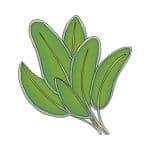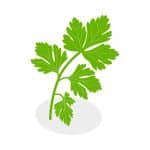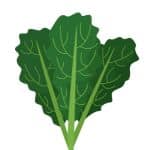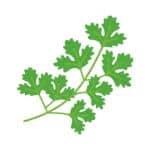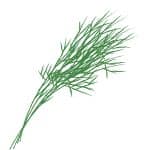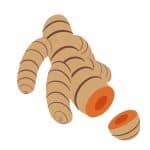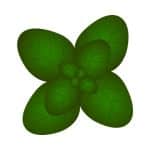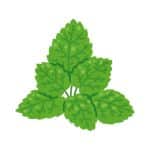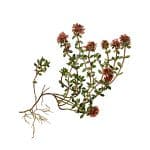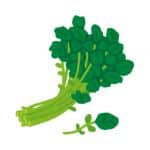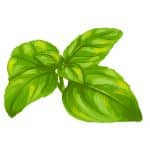What Your Dog Can Eat

Herbs are used in cooking and for various purposes, such as preserves, insect repellents, and medicines. It is also said to be good for the body because it regulates the physical condition, but is it safe to feed the herb to the dog?In this article, we have summarized whether it is safe to feed herbs to dogs, the effects on dogs, and precautions when giving them. Herbs are used to deodorize and flavor dishes, as a preservative, as an insect repellent, etc., but herbs are a general term for plants with medicinal properties in the first place.It is said that wild animals may eat herbs naturally when they are not feeling well or want to boost their immunity. Therefore, you can expect the benefits of herbs for dogs as well.However, some herbs should not be given to dogs. It is also important to note that depending on the disease and constitution that the dog suffers from, it may be better not to provide herbs. When you feed herbs to dogs, please make sure to find out how they affect your dog’s body and use them correctly. As you can see, herbs are safe to give to dogs but be aware that some herbs should not be provided.
Sage is also a commonly used ingredient in cat food and dog food and is expected to have antibacterial and bactericidal properties, relaxing effects, and digestion promotion.Sage has a problem with an essential oil component called “thujone,” which is explained below, but it is dried and heat-treated to make pet food, and thujone is not detected in the finished pet food. In addition, sage has been used in pet food for many years, and it has been confirmed that there are no problems, so please be assured. Check all about the sage
While eating this herb is not a substitute for brushing or professional teeth cleaning, cilantro can help improve the smell of your dog’s breath—however, not all dogs like cilantro.”Cilantro is not toxic to dogs, but most dogs don’t like the taste of cilantro,” warns a veterinarian. It would be best if you let your dog taste a small amount of cilantro to see what he thinks about the taste. Check all about the cilantro
Collard greens are not inherently harmful to dogs, but they should not be eaten in large quantities regularly. Enjoyed in moderation, collard greens are an excellent source of nutrients such as potassium, magnesium, and vitamins A, K, and C. However, not all parts of collard greens or cooking methods are suitable for your pup. This dish can cause kidney or bladder problems in dogs. Check all about the Collard greens
Coriander is an ingredient that is safe to give to dogs. It is a non-toxic herb for dogs, and it is an ingredient that can be expected to have a health-promoting effect not only for people but also for dogs. However, some dogs dislike the scent of coriander because it has a unique scent. Please refer to the tips on how to give coriander and what to look out for if your dog doesn’t like the smell. Check all about the Coriander
Dill, which is characterized by its sweet aroma and is used as a flavouring agent for dishes such as fish dishes and pickles, is expected to have effects such as promoting digestion, increasing appetite, and anti-inflammatory. Dill is not considered toxic to dogs and cats, but since it contains limonene as an essential oil component, we think it is an ingredient that is difficult to say is safe to eat. Check all about the Dill
As you have seen, your dog companion can benefit from ginseng a lot. It is a good food for your dog, but you should take it in small quantities.So dogs can eat ginseng without fear. But, large amounts of ginseng may prove harmful to your dog. Ginseng can help get rid of diseases like constipation, loss of appetite, etc.Check all about the Ginseng
it is safe to give herbs to dogs. Herbs are used to deodorize and flavour dishes, as a preservative, as an insect repellent, etc., but herbs are a general term for plants with medicinal properties in the first place. It is said that wild animals may eat herbs naturally when they are not feeling well or want to boost their immunity. Therefore, you can expect the benefits of herbs for dogs as well..Check all about the Herbs
Rosemary is beautiful in purple and pink, but rosemary can be expected to have anti-allergic effects and prevent bad breath..Check all about the Rosemary
Oregano is a popular herb because it has a strong aroma and goes well with tomatoes. Oregano can be expected to have a digestive and soothing effect..Check all about the oregano
Mint is widely used and has a refreshing aroma. By giving mint, you can expect to prevent bad breath and have a relaxing effect.Check all about the mint
It is also a plant that helps repel insects such as mosquitoes and mites. There are various varieties of thyme, but if you want to use it as a ground cover, “creeping” or “creeping thyme” is suitable. It is also characterized by the fact that it takes less effort to grow. Since the delicate leaves grow in such a way that they fold on top of each other, the back tends to get stuffy in hot and humid Japan. If it grows too much, prune it and keep it well-ventilated to make it easier to maintain..Check all about the thyme
Parsley Italian parsley is safe to eat. Despite the small vegetables such as carotene, vitamins, and iron, β is rich in honours. The effects of nutrients include alleviation and prevention of anaemia, improvement of immunity, and prevention of bad breath. Depending on your dog’s preference, you can give it raw or heatedKnow the appropriate amount for each body weight and be careful not to overeat or indigestion. Be careful of allergy symptoms, just in case.Check all about the Parsley
If your dog has ingested peppermint, there are a few steps you can take to minimize the potential for harm. First, check when and how much peppermint your dog has ingested. This will help the veterinarian to make a more accurate diagnosis and determine the optimal course of treatment. Next, keep a close eye on your dog for digestive upset and other symptoms of peppermint poisoning..Check all about the peppermint
Stevia extract is a component whose main component is stevioside and rebaudioside A, which is obtained by purifying the leaves of Stevia rebaudiana of the Asteraceae family. Since it is about 200 times sweeter than sucrose, it is used as a sweetener in confectionery and beverages..Check all about the Stevia
It can be expected to have effects such as boosting immunity and metabolism and forming strong bones. When giving it to dogs, chop a small amount finely. You can also give a small amount of basil seeds. One of the most readily available herbs, basil is a safe food for dogs to eat. That said, herbs can be too irritating for dogs, which can lead to diarrhoea and indigestion in some dogs..Check all about the Basil
Turmeric is generally safe for dogs, but it is essential to use it in moderation. As with any herb or supplement, excessive consumption can cause side effects. If your dog consumes too much turmeric, they may experience abdominal pain, diarrhoea, and vomiting. It is also not recommended for dogs that are pregnant and prone to liver disease and kidney stones.Check all about the Turmeric
Dogs cannot eat licorice. The high amount of sugar in liquorice harms a dog’s teeth. Dogs can also become diabetic and obese as a result of it. Sugar consumed in excess can cause water retention, sodium retention, and potassium deficiency.Check all about the liquorice
Your dog will definitely give you a kiss of approval if you sprinkle some parsley or basil on their treats.Just stay away from known to be harmful spices and herbs like nutmeg, garlic, salt, and cocoa. Before introducing new herbs and spices to your pet’s food, it’s a good idea to discuss pet-safe options with your veterinarian.
Numerous widely used culinary herbs are safe for Fido and Fluffy. These consist of lavender, rosemary, cilantro, parsley, sage, and basil. Fido can safely consume cinnamon and turmeric, but Fluffy can safely consume catnip, dandelion, valerian, echinacea, and goldenseal. Certain herbs may truly be advantageous to your pet.
Although modest amounts of capsaicin are thought to be non-toxic to dogs, consuming more of it might result in unpleasant diarrhoea, vomiting, and stomach pain
Similar to why they enjoy eating grass, your dog may be consuming plants for a variety of reasons.Some plants might be tasty, your dog might be malnourished, they might be experiencing nausea or gas and want to ease the symptoms, or they can just be bored.
Your garden’s medicinal herbs are a terrific addition to a balanced diet for dogs. Dogs can also consume a variety of plants that are used as natural therapies to treat minor illnesses. They can even be used as a component of medical therapy, provided you speak with your veterinarian beforehand.
.Giving your dog a herbal treatment is a simple process. Grate the herbs finely and sprinkle them over your dog’s food, or steep the herbs in water and pour the liquid over the food or directly into your dog’s water bowl.
All it takes to drive a dog insane are strong herbs like basil, mint, and rosemary. These scent aversions, however unpleasant, can be useful for rewarding positive conduct, particularly if you wish to keep your digging dog out of your garden.
Can You Give Herbal Tea to Dogs? Your dog can safely drink herbal teas in moderation. Although fresh water is preferred, dogs can drink tea brewed with chamomile, ginger, echinacea, rooibos, and peppermint.Consult your veterinarian to determine whether giving your pet any of these beverages is a smart idea before doing so.
I also think that basil, oregano, dill, parsley, rosemary, mint, thyme, plantains, and cleavers are some of the best-dried herbs for dogs. All of them frequently show up in my dog’s diet in one form or another. I really hope you’ll think about giving your best friend the same treatment!
A popular flowering herb for strengthening liver function in dogs, cats, and humans alike is milk thistle. Milk thistle’s active ingredients are known as silymarins. These flavonoids help heal damaged liver cells and encourage the growth of new liver cells.
A few excellent ones are as follows: – Lavender and chamomile soothe dogs that scent the plants. Dogs can consume the plants and experience the same benefits. – Dogs that sniff rosemary and mint get energised.
Herbacalm is an all-natural, chemical-free herbal supplement made especially to help dogs get through tough times. For all parties concerned, it can greatly enhance the enjoyment of those veterinary visits. How to apply:For dogs under 9 kg, take 1 teaspoon with their meal or plain yoghurt.
